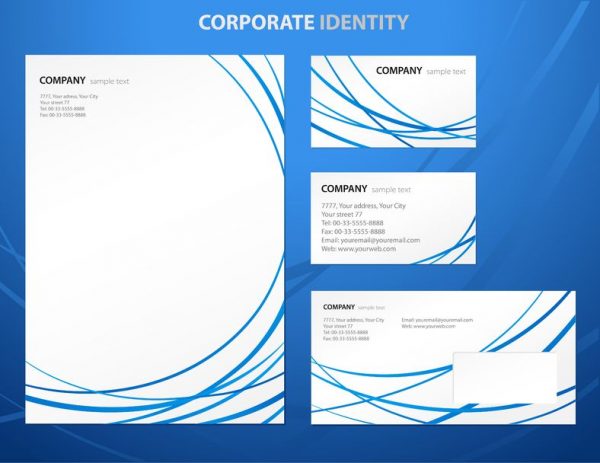Preparing T&Cs for a business is one of my MOST favourite things as I really get to delve into a business and get to know the ins and outs. T&Cs are your contract with your customers, telling them basically how you are going to transact with them and setting the basis for your relationship.
In my opinion, there can be no “one size fits all” for T&Cs because each business is so different in the products and services it provides and in the way you want to deal with your customers. This is often your point of difference. Below is a list of things to think about when preparing your T&Cs. It is by no means an exhaustive list and not all things will be relevant for all businesses.
Application of Terms of Trade
- When do the terms apply? For example, making the initial deposit the customer agrees to all your terms.
- What terms apply? For example, do the T&Cs stand alone or do additional terms contained in your emails and website (or elsewhere) also form part of the agreement between you and your customer?
- To keep the appearance of simplicity you may like to refer to a few of the main terms on your invoice and refer to where the rest of the terms can be found. For example, the terms may be printed on the back of your invoice.
Prices
- Whether prices are quotes or estimates and whether they are subject to adjustment, correction or change before acceptance by the customer.
- Out of pocket expenses to be charged to customer including any disbursement costs you will be paying to third parties.
- What if client wants to post-pone the scheduled day the services are provided?
- Will draft footage/documents/photos be sent to client and allowance of any amendments within the estimated/quoted prices?
Payment
- Consequences of non-payment e.g. penalty interest being charged, whether collection costs are payable by the customer. Do you want customer to cease using the products/material provided etc. Do you want the right to stop production of remaining work in progress if payment is not made by the due date?
Delivery
- Do you want to protect yourself from being liable for the delay in providing any products if the delay is caused by something outside your control e.g. technical malfunction or natural disaster.
- Do you want to state the way the product will be delivered and what the quality will be? The more information provided the better as the customer will know what to expect.
Reservation of Title
- You can continue to own the products until they are paid for in full.
Intellectual Property
- As above, you can continue to own the intellectual property (“IP”) in the products until paid for in full. This makes it easier to enforce a “cease and desist” for the use of the products if payment is not made in full. In this section, you can also specify how it works with purchasing IP from a third party i.e. stock images, drone footage, music, etc.
- Does IP created during production to pass to the client?
- Do you grant an irrevocable licence for the customer to have non-exclusive, royalty free, use of the elements of the product which was not created for the customer as part of the product production e.g. for video/advertising/etc?
- Do you warrant that you have secured the necessary rights of third party IP used?
- Do you warrant that you are not infringing any third-party IP rights?
Registering a security interest
- When goods are sold on credit it is recommended that you register a security interest over those goods. By going this you secure the right to repossess the goods if you customer does not pay you as required.
- A security interest can also be registered over the customer’s personal property.
- This helps in the event the customer does not pay and you need to reposes goods to help clear the invoice.
Warranty
- Ideally you would limit all warranties to those required by law.
- For example, you do not undertake or warrant that goods are fit for a particular purpose unless specifically stated by you in the terms.
- Do you warrant to use reasonable efforts to obtain all licences, consents and rights necessary to use third party IP?
Limitation of Liability
- Similar to warranties above, unless specifically sated in the terms, you are not liable for any injury to persons or damage to property or financial loss suffered by the customer.
- The product is used at the customer’s own risk.
- A disclaimer of liability can be one of the most important parts of your T&Cs.
Consumer Guarantees Act
- You can contract out of the Consumer Guarantees Act for business to business transactions.
Cancellation
- Do you have a cancellation policy?
- Can you or the customer cancel at any time?
- If so, how much notice is required and will there be a refund?
Bankruptcy or Insolvency
- Upon the customer becoming bankrupt of insolvent, the contract could be cancelled by you and any security interest becomes immediately enforceable.
Signatory’s authority to bind customer
- The person instructing you is not the customer or a director of the customer, they should confirm they are authorised to enter the contract and incur the cost for the customer.
Guarantee
- If the customer is a company or trust, do you want the person instructing you (as referred to above) to be personally liable for the full amount of invoice if the company or trust (who is the customer) is wound up?
Credit application form
- It can be advantageous to have customers complete a credit application form to collect the data/customer details you need for debt collection purposes and for carrying out a credit check.
Health and safety
- Client should be required to comply with your health and safety requirements
Creative brief
- Must the customer accept your decisions on creativity?
- Is there a limit to their input and time spent changing specifications or requiring edits to first draft of the products?
- Is the client required to provide any material e.g. scripts, etc?
Dispute resolution
- Do you want to include a complaints process and disputes resolution process instead of heading straight to Court? Although, depending on the value of your product/services, the Disputes Tribunal may be the cheapest most effective way to resolve a dispute if it cannot be resolved between yourselves.
Insurance
- Do you hold public liability insurance?
Employees, freelancers or contractors
- Will they be bound by these terms?
Privacy policy
- Anyone who collects customer information needs to have a privacy policy.
- Do you already have a policy in place?
Please do not hesitate to contact the team at Regent Law if you have any questions or would like assistance in preparing your T&Cs.





Leave A Comment